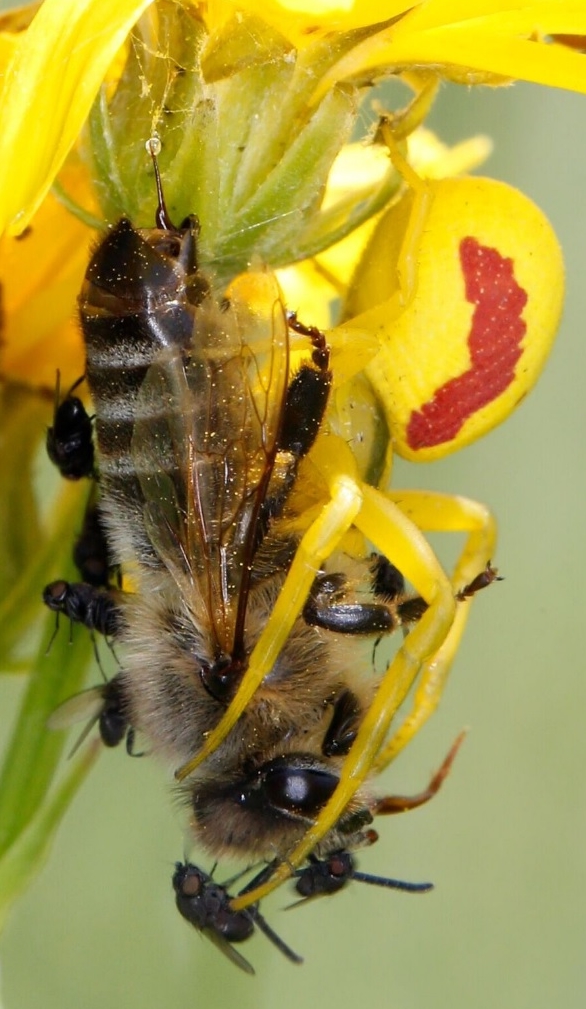Podcast: Play in new window

BOB HIRSHON (host):
The scent of devious plants. I’m Bob Hirshon and this is Science Update.
When honeybees are attacked by spiders, they emit scented chemical alarms to alert their nestmates that they’re in danger. But the odors also attract hungry parasitic flies, which feast on the honeybees as well. Now, scientists have discovered that flowers of the Giant Ceropegia plant recreate the bees’ alarm scents in order to trick the flies into pollinating them. University of Salzburg plant ecologist Stefan Dötterl explains.
STEFAN DÖTTERL (University of Salzburg):
We show that the flowers of the ceropegia plant mimic the scent released from dead honeybees and so flies are attracted to the flowers expecting a meal, but instead they are temporarily trapped in the flower and misused as pollinators.
HIRSHON:
Dötterl and his colleagues write in Current Biology that pollinator deception is a common strategy in plants. I’m Bob Hirshon, for AAAS, the science society.
Story by Susanne Bard
